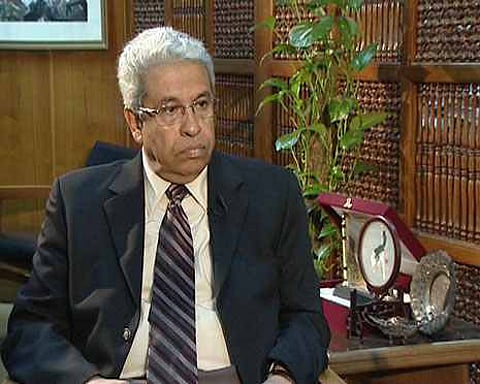Brotherhood dug their own grave — analyst
Abdul Moneim Said says the group was not prepared to be in power

Cairo: Historically, Egypt’s Muslim Brotherhood were given many opportunities to be a part of the political arena, but they lost their chance due to their aggressive and secretive intentions of overpowering the country. The January 25 revolution gave them a golden opportunity to prove their critics wrong but they were not prepared to run the country and didn’t know anything about the power, Abdul Moneim Said, a veteran political analyst told Gulf News in an interview.
Question: What can the Muslim Brotherhood do now to get themselves out of the current situation?
A) The way they’re handling the street is wrong. They are alienating more and more people. They’re writing the certificate that takes them off the political competition arena of the Egyptian politics.
You can’t rule a country while you’re disrupting its path, trying to attack its institutions, like courts, public municipal buildings or certainly police stations.
Once you start attacking courts and police stations, which are providing a lot of services to the people and solving their ordinary and daily problems, you’re depriving the country from the normal life. So now they have to stop alienating people and get back to positive ideas.
Q) In previous crises, the Muslim Brotherhood usually chose to save their organisation and not be involved in a tough confrontation with the regime. How you explain their behaviour this time?
A) In the past deep crises that took place in the late 1940s, 1954 and 1965 the Muslim Brotherhood were thrown out of power. After January 2011, they got the best chance to come into power. They ruled and were going through a very fast track process of “brotherisation” of the rest of the institutions in the country. They felt empowered and felt connected with the US, European powers and others. Until now they are in shock of losing power because they underestimated the civic roots of the Egyptian state.
With time they will understand the current balance of power, which is certainly not in their favour, as the people, the state institutions and the army are together against them.
Q) How do you explain their swift fall from power?
A) Their performance during such a short period of time was, to say the least, lousy. They appeared ill-prepared to run the country and did not know anything about the power. They were living only on slogans.
They worked on two lines to change the identity of the country from being a civic state to religious one. Also, they tried to control all the major institutions of the state the judiciary, the media, security apparatus and the army and tried to create parallel institutions. They used Turkish intelligence to create a parallel intelligence network.
They used mass media networks, particularly Al Jazeera network and others of their own. They formed their own militias and definitely supported the terrorists groups in Sinai by releasing some well-known criminal terrorists from the prisons and also by allowing hard battle trained terrorists to come from Afghanistan and Pakistan into Egypt.
In many ways, they were preparing to take over the state before the Egyptian voting for Mursi, which was one man, one force, one time. So historically, I think, the Muslim Brotherhood had a lot of opportunities to be part of the civic political sphere but lost them due to their aggressive and secretive intentions of overpowering the country.
Despite all what had happened in the present, they still have support, I can estimate it with 20 per cent, which is no small percentage — it is millions of people. The idea is that they have a political party and can participate like any other parties. But we don’t want a secret organization with international connections.
They are not going to be eradicated from the Egyptian political scene unless they choose to do so. If they are involved in terrorism, I think, the duty of the state will be to crush them.
Q) The US administration wasn’t happy with some decisions made by the defence minister Abdul Al Fatah Al Sissi, especially what could be dubbed as “breaking the neck of the Brotherhood in Egypt and the Arab world”. To which extent may this dispute reach?
A) It is highly related to the process of stabilising the situation in Egypt. Once that happens the relationship could gradually come back to normal. The two countries have enough mutual interests to protect their relationship.
However, I agree with you that there is a present tension, simply because there is a different concept of what is happening in Egypt between the new ruling leader in Egypt and Obama’s administration.
The US didn’t recognise that Tamarod movement succeeded to collect 22 million of signatures asking Mursi to hold an early presidential election or leave. Obama’s administration also didn’t understand that June 30 was a revolution crowned on July 3 and that the Egyptians mandated powers to the military on July 26 to follow the path of the transitional programme.
In addition the US ignored completely the facts that the sit-ins of Rabaa Al Adawiya and Al Nahda weren’t peaceful. They were moving sit-ins and full of women and children. The participants were making expeditions by demonstrating into other districts, attacking public buildings, and cutting roads. It wasn’t a peaceful type of demonstration but a well-armed, attempt to disrupt public life.
It was enough of patience. The regime took 44 days trying to coax them to leave. There is a complete ignorance by the US of evaluating the dangers of the sit-ins.
The writer is a journalist based in Cairo
Sign up for the Daily Briefing
Get the latest news and updates straight to your inbox



